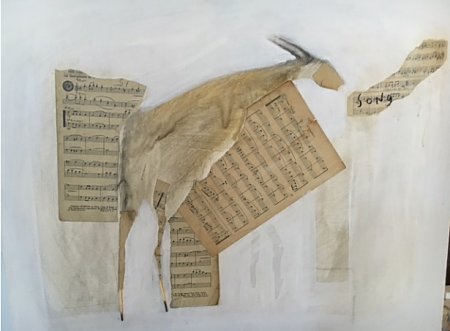
Receptions With the Poet
The poetry of William Carlos Williams used to be obscure to me. Now it’s hard to remember what was so difficult about it back in college, when I sat cross-legged on a shag rug in the farmhouse of the poet Theodore Howland, who held his writing seminar at his home a few miles from campus in Connecticut.
Age forty-eight, he wore brown corduroy jackets and soft flannel shirts and lived with an apricot-colored standard poodle. As a young man, he had been a bomber pilot in World War II, and later in life he had won the Pulitzer Prize for poetry. Logs crackling in the fireplace, he sat in a leather armchair smoking cigarettes as he taught us how to read from a writer’s point of view, showed us the choices writers make. For instance, Shakespeare used the word never five times for King Lear’s description of when he would see his dead daughter Cordelia again. Never, never, never, never, never. Say it four times, it’s different. Say it six times, it’s different in another way.
My fantasies about Theodore Howland were odd even to me at the time, sitting among the other girls gathered in his cozy living room. I imagined myself in his bathtub, the old-fashioned kind with feet, though I’d never seen his bathtub. Mr. Howland comes in, picks me up out of the tub, and dries me off. I rehearsed that scene over and over as he sat in his armchair listening to my classmates. Sometimes I tried to force my daydream out of the steamy bathroom and into the bedroom, but even there it was chaste. He put me to bed under fluffy eiderdown, tucked me in, and I drifted blissfully to sleep. It did not occur to me that the comfort I derived from imagining Mr. Howland taking care of me like a baby might have something to do with feeling too alone in the wide world.
I assumed everyone felt cast adrift at college. You made yourself tough. Those girls freshman year who had to return home seemed unbalanced to me and made me glad I didn’t have a home to tempt me. I couldn’t give in to homesickness because my mother was traveling in Europe and my father now lived with his mistress. Mr. Howland was my trusted older person. He gave me A’s, and I believed myself to be his pet.
One of our assignments was to write in a journal every day. Some of the girls in the seminar filled in their journals the day before they were due. I had been keeping a daily journal for years. It was irrelevant that Mr. Howland wanted to see it once a month.
It was jarring to see his handwriting on my pages. Handwriting is as distinctive as body smell, and he made his a bit too pungent by using red ink. “This is wonderfully unselfconscious,” he wrote after one of the entries, and I wondered what he meant. Why would I be self-conscious writing in my own journal? I liked putting into words what went on with my boyfriend when I visited him on weekends at the Yale Medical School dorms, how we made chocolate pudding on his hot plate and ate it with vanilla ice cream melting on top, how we listened to a kitten’s heart going a mile a minute with a stethoscope, how he studied at his desk with his right leg jiggling up and down while he hunched over medical books full of alarming illustrations.
The joke back in the sixties was that girls went to college to earn an MRS degree, but it wasn’t funny to those of us who graduated without it. It felt dire not to be chosen, not only because it meant we were not loveable but because nothing in our liberal arts education could translate into rent money. That I would have to take care of myself became clear senior year. How could I love my boyfriend so much more than he loved me? How could I want to get married to him when he didn’t want to get married to me? Could anything hurt more than this? Could anything be more humiliating?
Since getting married was the goal, the best plan was to go where the most boys were. Harvard was full of boys, so I applied and got in. One week I went out with eight different ones. I’d gone from famine in New London to feast in Cambridge. What had I been thinking going to a girls’ school? I’d been in a nunnery and hadn’t even known it. I must have been out of my mind. But it was worth it, I told myself, because I had been able to study with Theodore Howland.
